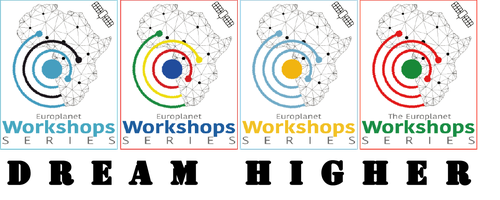EPN24
Europlanet 2024 Research Infrastructure

About the Europlanet 2024 Research Infrastructure (RI)
The Europlanet 2024 Research Infrastructure (RI) provides free access to the world’s largest collection of planetary simulation and analysis facilities, data services and tools, a ground-based observational network and programme of community support activities.
The project is funded through the European Commission’s Horizon 2020 programme and runs for four years from February 2020 until January 2024. The Europlanet 2024 RI consortium is led by the University of Kent, UK, and has 57 beneficiary institutions from 25 countries in Europe and around the world, with a further 44 affiliated partners. The project draws on the resources of the Europlanet Society to disseminate activities and outcomes and develop a more diverse community of users.
Europlanet 2024 RI provides:
Transnational Access (TA) to 24 laboratories in Europe and six field sites, as well as addtional facilities in South Korea and China.
Virtual Access to services and tools.
Networking activities (NA) to support the community and provide rapid response observations to support planetary missions.
UNIBO is involved in TA and NA acitvities, coordinating the Six Planetary Field Analogues (PFA) from Botswana to Iceland to support current and forthcoming missions to Mars, the Moon and the icy moons of Jupiter in the TA, and leading the Global Collaboration and Integration program of the NA.
Europlanet 2024 RI has received funding from the European Union's Horizon 2020 research and innovation programme under grant agreement No 871149.

EPN 2024 RI
NA1 T4-Global collaboration and integration
Workshop Series
EPN-2024-RI’s global collaboration and integration NA Task 4 aims to inspire and encourage planetary science and space technology development across borders in developed and developing countries and across the spectrum of academia, industry and civil society. In making the distributed planetary RI available to more scientists and industries worldwide, EPN-2024-RI will facilitate a more integrated and interconnected global planetary science community and stimulate the creation of opportunities that have the potential for immense impact on the environment, culture, socio-economic development and prosperity.
One of the actions in the global collaboration and integration NA Task 4 will be the organisation of training activities in African countries to create local experts with the skills and technical capability to work independently on planetary science projects, therefore producing a long-term goals creating conditions for new scientific partnerships between EU and non-EU countries.
2021:
Satellite for Space Science in Africa, Palapye, Botswana (Local contact: Dr. F. Franchi)
Space Science and Geotourism in Africa, Samera, Ethiopia (Local contact: Dr. J. Ahmed, Prof. M. Hagos)
2022:
TBD, Cordoba, Argentina (Local contact: Dr. F. Gomez)
2023:
TBD, Morocco